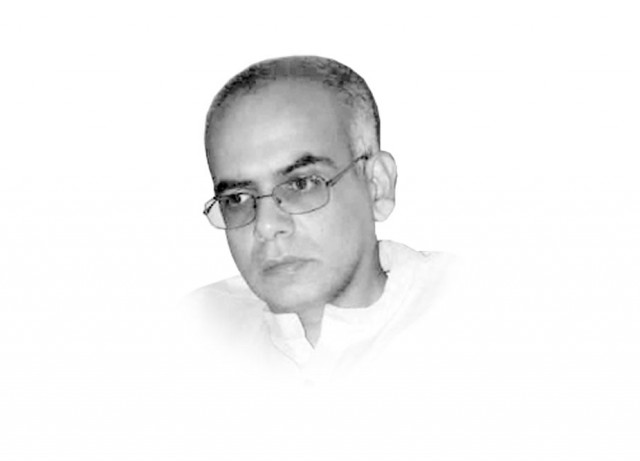Increase aid to curb migration and refugee crises
Rich countries need to step up aid to conflict zones, or refugees, migrants will continue to seek safety in Europe

The writer is author of the book Development, Poverty and Power in Pakistan, available from Routledge
Every day, international news channels like the BBC are showing reports about desperate people struggling to reach different parts of Europe. In the first half of this year, at least 137,000 people have crossed the Mediterranean into Europe and around 3,000 people a day are pouring into the Balkans alone. These desperate people are fleeing violence and poverty in countries such as Syria, Afghanistan and Eritrea.
European countries are currently struggling to cope with the refugees and migrants pouring over its borders. Germany and Sweden are being very magnanimous but Hungary, which is the gateway to visa-free Europe, has put up a razor-wire fence to keep migrants out. European policymakers are mulling over the need to adopt a more unified stance on migration across the continent, including making clearer distinctions between incoming arrivals, such as those seeking refuge from war or persecution, and those merely moving illegally across international borders in search of opportunities to improve their lives, and hence, are categorised as economic migrants. Western European countries are calling for a quota scheme so that eastern European countries also take the responsibility of accommodating their share of refugees flooding into Europe.
However, drawing distinctions between economic migrants and refugees is not easy in practice. While the case of Syrian or Eritrean refugees fleeing state violence is clear enough, what about the case of Iraqis or Afghans tired of trying to eke out a living amidst violent domestic surroundings? Are they migrants or refugees? There are emerging arguments about whether migrants fleeing their homelands due to the effects of climate change, such as the desertification of the Sahel region ought to be reclassified as refugees. At present, Europe alone spends billions of dollars annually trying to decide if migrants really are genuine refugees fleeing state persecution and violence, or just general instability and lack of economic prospects within their homelands in search of a better life abroad.
Alongside anti-immigrant sentiments, more moderate voices in Western countries are calling for counteracting people-smuggling rather than punishing those desperate enough to rely on them. Human rights advocates are also demanding the creation of massive resettlement programmes for refugees fleeing violence in particular.
Another sensible approach which deserves more attention to deal with the current refugee and migrant crisis is to channel more money to help families in their home countries before they feel they have no choice but to flee abroad. However, the international community is not providing enough resources to implement this approach. The UN’s Office for the Coordination of Humanitarian Affairs, for example, has only received a third of the funds it needs to help 78 million people around the world, a majority of whom are stuck in conflict zones. In Iraq, 84 per cent of health programmes supported by humanitarian partners, including the World Health Organisation, have been forced to close due to a shortage of funds. The World Food Programme has been forced to scale back its efforts to feed 1.5 million Syrian refugees in neighbouring countries like Lebanon due to insufficient donor support.
Rich countries in the Western world, many of which have had a colonial legacy and played a continued detrimental role in festering conflicts and inequalities in developing countries where the migrants and refugees are fleeing from, need to step up aid to conflict zones in the Middle East and Africa, or else refugees and economic migrants will continue to seek safety in Europe and other developed countries in ever greater numbers.
Published in The Express Tribune, September 4th, 2015.
Like Opinion & Editorial on Facebook, follow @ETOpEd on Twitter to receive all updates on all our daily pieces.















COMMENTS
Comments are moderated and generally will be posted if they are on-topic and not abusive.
For more information, please see our Comments FAQ